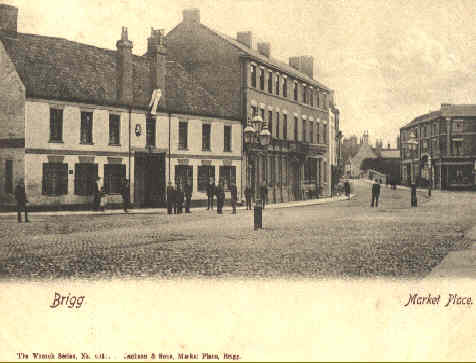|
Much business is done here in corn, coal, and timber; and here are several corn mills, two roperies, two tan and fellmongers' yards and several malt kilns. The town was formerly very extensively engaged in dressing rabbit skins and fur, but this trade has considerably declined since the enclosure of most of the large warrens of Lincolnshire. Several of the inhabitants are owners of small trading vessels, and packets sail daily with passengers to Ferriby Sluice, to meet the Hull steamers. The market, held every Thursday, is numerously attended, and well supplied with corn and all sorts of provisions. Here is also a large fair for horses, cattle, and sheep, on the 5th of August, and a hiring for servants on the Friday before Old May-day. Petty sessions are held once a fortnight, and a court of requests for the recovery of debts not exceeding £5, once a month, at the Town hall, under which is the butter market. Glanford Brigg Union, for which a large Workhouse was built here a few years ago, comprises fifty parishes and townships. In the reign of King John, an hospital was founded here by Adam Paynel, subordinate to Selby Abbey, but all traces of it disappeared many years ago. In 1699, a small Chapel of Ease was built in the town, chiefly at the expense of four gentlemen, named Atkinson, Jolland, Benson, and Dempster; three of whom bequeathed property for the benefit of a lecturer or curate, to be appointed by the trustees of the Free School, and to read prayers once a day, and preach every Sunday, as assistant to the vicar of Wrawby, who is virtually both patron and incumbent of the curacy. The Lectureship has generally been held by the head master of the free school, and is now enjoyed by the Rev. Charles Cotterill, B.A. The endowment consists of a homestead and about 30 acres of land, at North Kelsey, let for £30 per annum, and mostly derived from the bequest of George Jolland, in 1712, and partly from the bequests of Richard Benson and a Mr. Dempster, about 1740.
|
|

